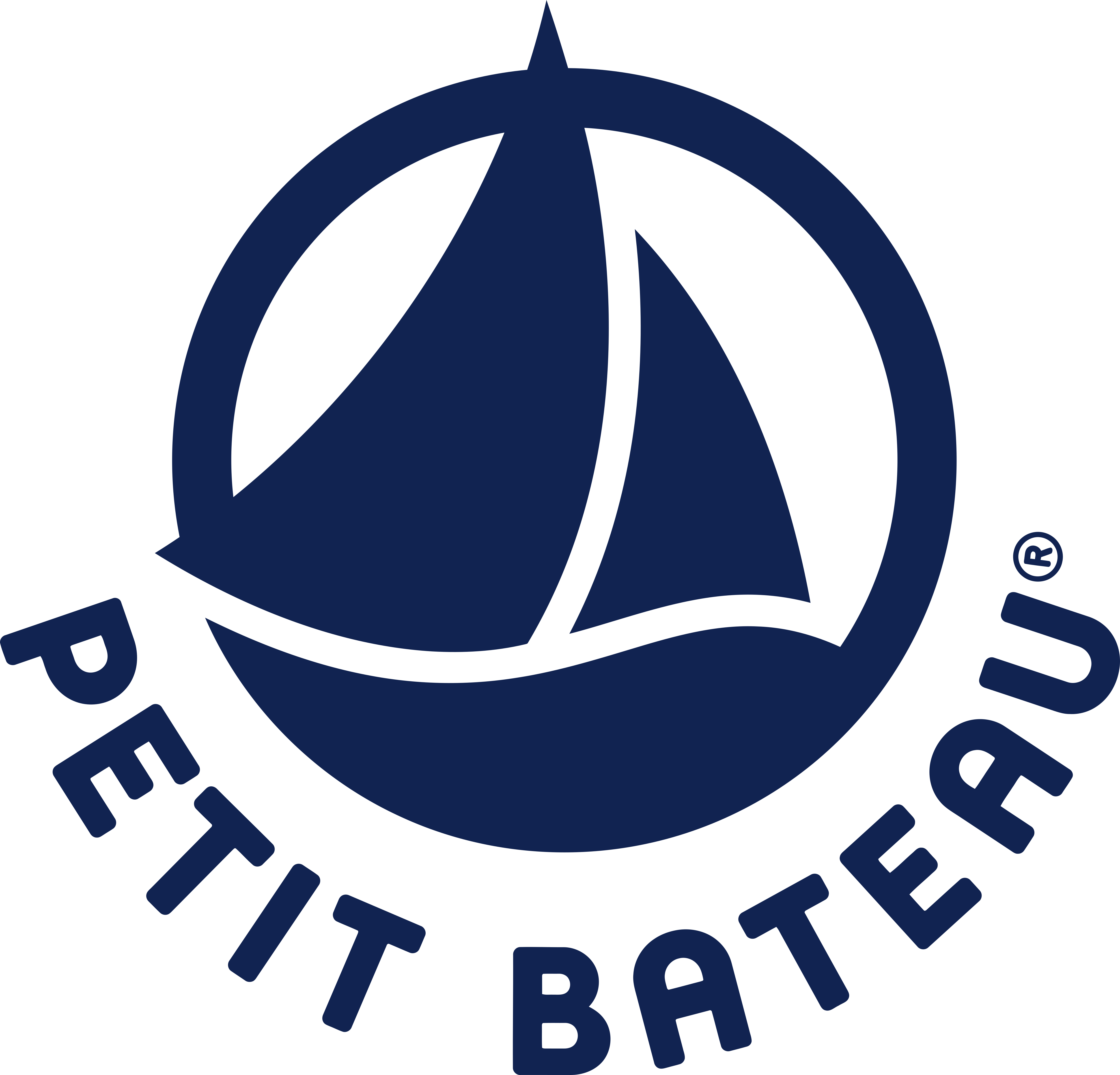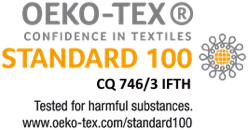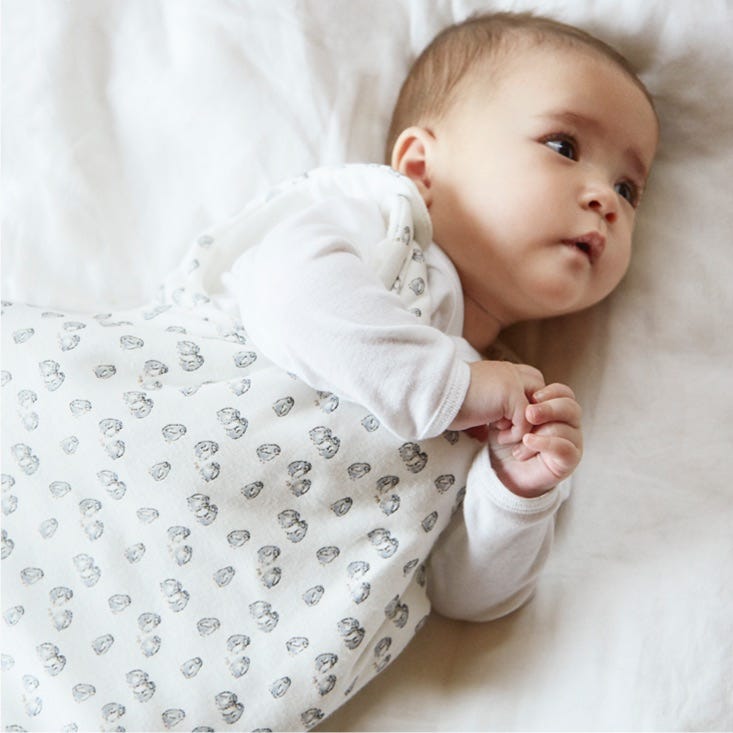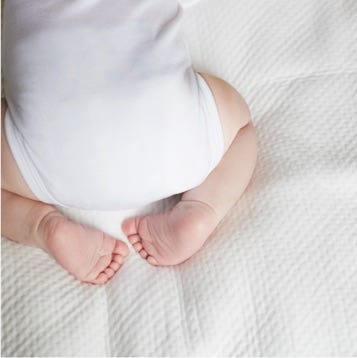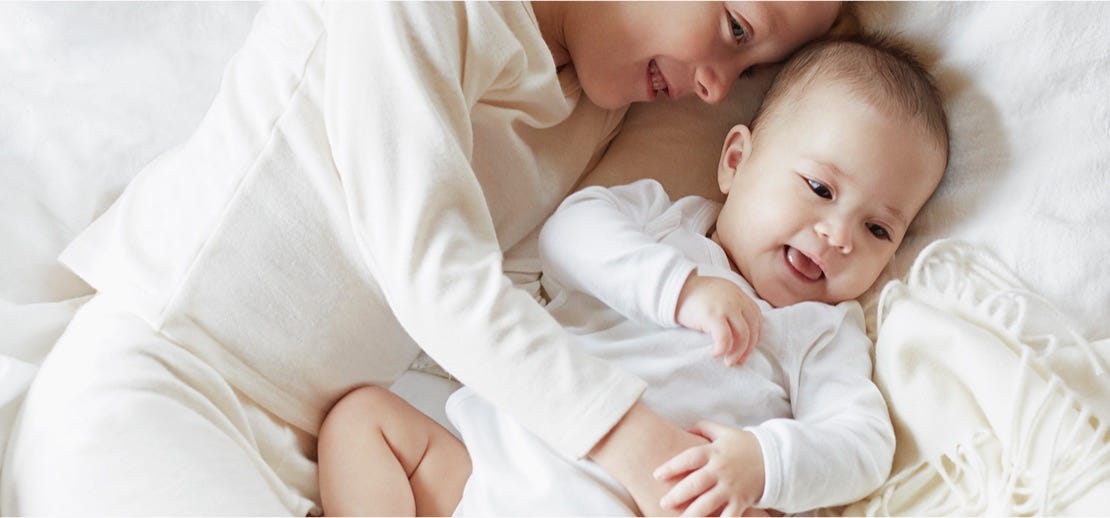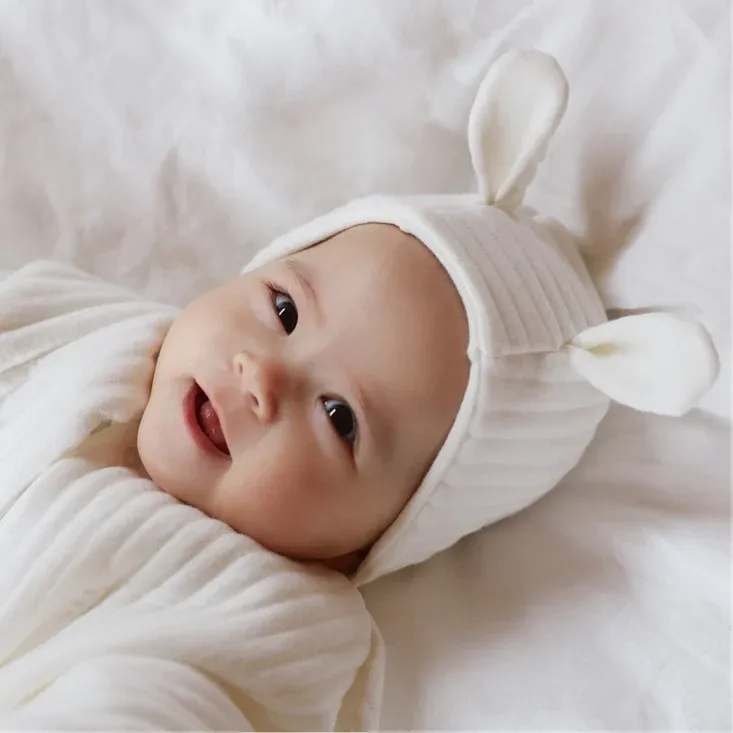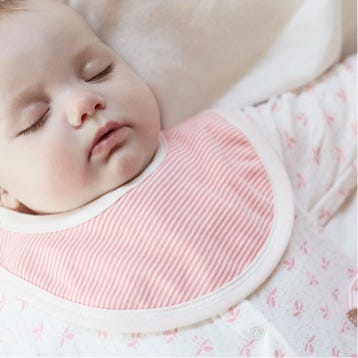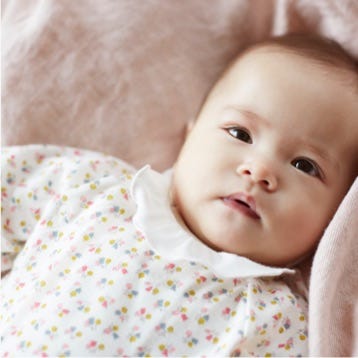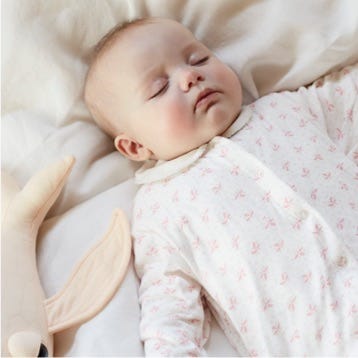On the side of future generations since 1893
Because it's close to our heart, we knitted some brand new garments for your little ones made of organically farmed cotton.
Discover the story of this demanding adventure with us.
Why organic cotton? how?

Virtuous agriculture
Preserving the soil, biodiversity and farmers' health and optimising water – organic cotton is an environmental choice.

Quality requirements
Superior cotton/a very long staple so that the knit doesn't fray or pill and lasts longer.

A rare resource
Only 1% of the world's surface area is organically farmed. We had to find the best quality from just this 1%!

Strict quality assurance
Petit Bateau regularly runs tests with 2 independent European laboratories who check the organic cotton's genetic make-up and that there are no pesticides present
And it's always OEKO-TEX
The European label Oeko-Tex® imposes strict tests, based on international standards. For over 10 years, Petit Bateau has consistently achieved this strict standard of certification ensuring that clothes with this label are safe for you. Which means we're kind to your little ones' skin!
And for the ideal present give a 100% natural gift
See the collectionAnd we haven't stopped there!
In summer 2023, all the cotton garments in the newborn collection are made from organic cotton.
Find out everything about the organic collection
Currently it is just for babies from birth up to a few months old. With an increase in the percentage of the world's surface where cotton is organically farmed (currently only 1%), we will gradually extend to children and adults.
It is designed in Paris by our teams of stylists and designers and is then made in Troyes, France, by our development teams and the materials and accessories purchase teams, our haberdashers who manage our knitting machines, our specialists in dyeing, screen printing, embroidery, our pattern makers and of course our sewers.
Currently, recycled cotton isn't durable enough to meet our quality standards, especially for knitted children's clothing. But we're working on it!
The same way you would wash a standard cotton garment! Tip: Please feel free to look at the "care advice" section on our product pages.
All the dyes we use are labelled Oeko-Tex and they are part of what makes our products kind to skin.
This is cotton that is farmed organically. It is different to conventional cotton in a number of ways because organic farming is generally sustainable and aim to improve soil, water, plant and animal quality, as well as to increase biodiversity.
For cotton to be organic, the seeds and plants must be farmed organically without any GMO involvement. Soil fertility and activity should be maintained or boosted as a priority with multi-year rotations, the use of green and legume manure, recycling and compositing organic matter and bring in organic matter from the farming process, or from organic farming in the same region. To control parasites and disease, through cotton varieties must be used, soil should be worked correctly, crops must be rotated and combined, and biodiversity and biological-control-friendly hedges should be planted where required. Other type of manure and natural control methods are also permitted where regulations allow.
By purchasing organically farmed cotton, we can help further this type of farming and so better protect the environment in the locations where it goes on.
It is the OEKO-TEX 100 label that guarantees cotton will not harm skin, rather than the fact that the cotton is organically farmed.
While conventional cotton represent 99% of world production, just 1% of the world's cotton is organically farmed.
Conventional cotton allows for the longest and finest fibres, guaranteeing a better quality thread. Meanwhile, "organic" cotton plants can have shorter or longer fibres and the thread is not always the same quality. So, we seek out the world's longest "organic" cotton fibre to obtain "organic" thread that meets Petit Bateau quality requirements.
QUESTIONS ABOUT PB CONVENTIONAL COTTON
In 2018, 47% of our supply come from spinners in the Middle East, 29% in Europe, 24% in Asia and 0.02% in Africa
The cotton fibre procured by these spinners mainly comes from the United States (48%) and Australia (18%). We forbid our suppliers from using cotton fibre from any country where International Labour Organization (ILO) rules are not guaranteed.
Cotton is by definition a natural plant. It is just that some plant have been genetically modified. This is now the case for most cotton plants, Mainly in bid to make them more resistant to the insect that regularly attack cotton crops. This practice means cotton farmers can use less pesticides on their crops. Nevertheless, conventional cotton is the cornerstone of the intensive farming practices that consume resource like water to an unreasonable degree. This why we are keen to find alternatives including gradually using more "organic" cotton and linen, for example.
QUESTIONS ABOUT SUBJECTS OTHER THAN "ORGANIC" COTTON: CERTIFICATIONS OTHER MATERIALS, CLOTHES RECYCLING
All ours products meet the OEKO-TEX 100 label standards.
Our child care items, our entire "organic" and conventional cotton new born collection, our underwear and our nightwear have also been awarded this exacting certification which guarantees they will not harm skin and will indeed look after it better. The certification is renewed annually and checks are made during the year with unannounced tests on items in production. What's more, all our products comply with European REACH Since 1893, PETIT BATEAU has been designing and making high-quality, durable products aiming to offer customers comfortable, practical and safe items that boost their well-being. We make use of our expertise, putting the same attention and goodwill into new born garments as into our must-have adult T-shirts.
The conventional cotton fibres we buy comes mainly from the United States and Australia. The linen is grown in France and Belgium.
We try to use natural materials like linen and when we do include manufactured fibres (polyester and polyamide, etc.) we procured recycled fibre supplies that comes from old plastic bottles or fishing nets.
LINEN: We have been knitting and creating linen clothing since the start of the 2000s. This fibres has a range of benefits. It is one of the few fibres produced locally in the France, or at least in Europe, and is farmed dry, required little manure or pesticide. It is also study material that makes an absorbent and cool fabric.
We are working on a swimwear line with some recycled polyester thread in the fabric. Some of our clothes contain synthetic fibres like polyester and polyamide. We are hoping to include as much recycled polyester and polyamide as possible in our coming collections.
